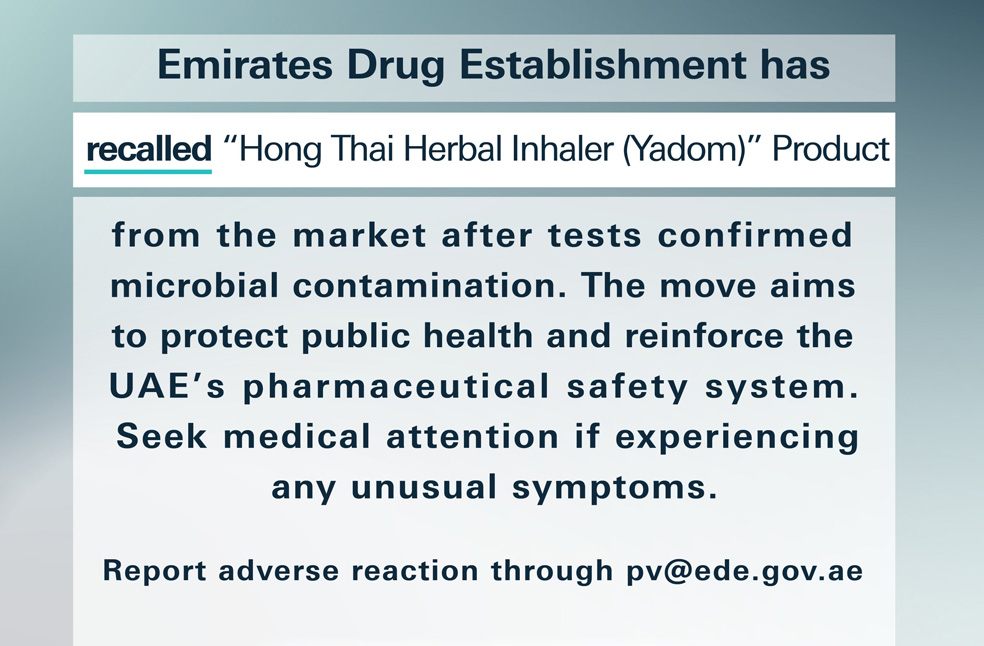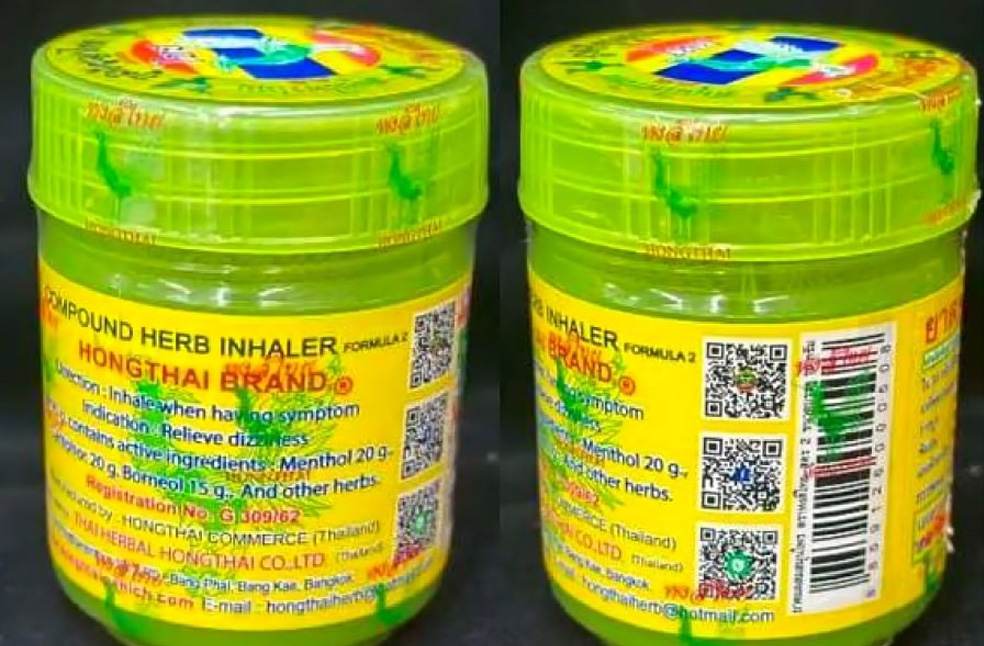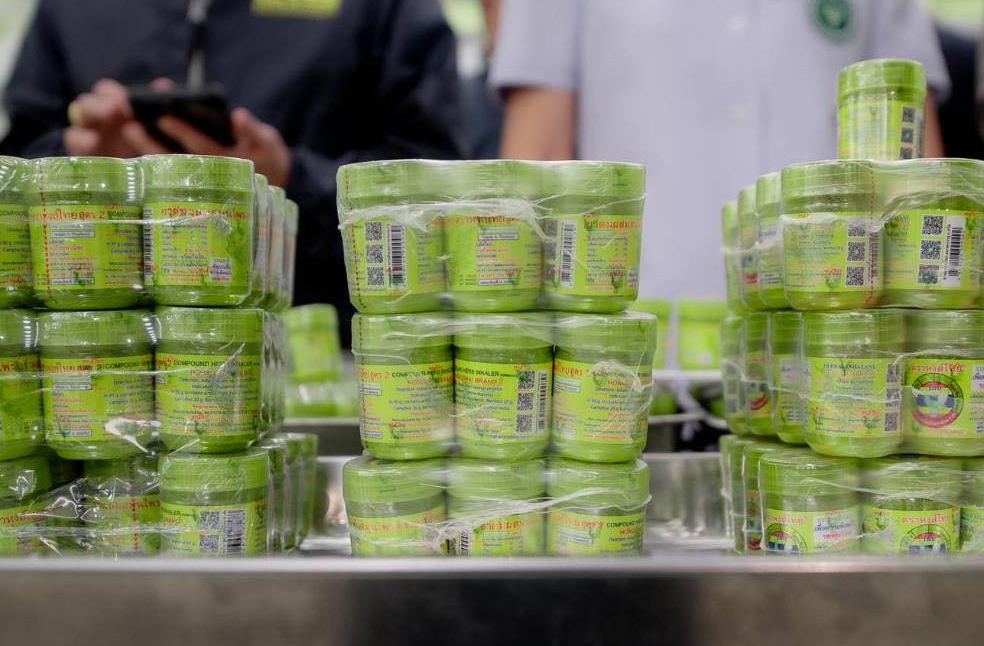Abu Dhabi: The Emirates Drug Establishment (EDE) has ordered the withdrawal of the ‘Hong Thai Herbal Inhaler (Yadom),’ a Thai herbal nasal inhaler, from the UAE market.
The action follows laboratory analyses that confirmed microbial contamination in several batches distributed locally. The measure, EDE said, reflects its continued efforts to protect public health and ensure patient and community safety.
The decision came following a notification from Thailand’s Food and Drug Administration (FDA), which had detected contamination in one batch of the product. In response, EDE immediately initiated a comprehensive investigation and began testing all other batches available in the UAE market to verify their safety.
Results from the Establishment’s Quality Control Laboratory showed that some market samples contained microbial contamination exceeding the internationally accepted pharmacopeial limits for inhalation products.

Such contamination, according to EDE, poses potential health risks to users. Consequently, EDE directed the withdrawal of all batches of the ‘Hong Thai Herbal Inhaler (Yadom)’ from circulation, not just the one flagged by Thai authorities.
The Establishment confirmed that this precautionary action is part of its ongoing commitment to ensuring the safety and quality of all pharmaceutical and healthcare products available in the UAE.
The recall is being executed in collaboration with local municipalities and other regulatory bodies to guarantee the complete removal of the product from all points of sale, including retail outlets and online platforms.
Drug recall procedures
EDE stated that it is closely monitoring the recall process to ensure its full implementation in coordination with relevant authorities. It urged members of the public to immediately stop using the inhaler and to safely dispose of any units they may possess.

The recall forms part of EDE’s wider strategy to strengthen the UAE’s pharmaceutical security system and maintain the sustainable availability of safe medicines in line with the highest international standards.
The Establishment said that it is developing an integrated regulatory framework grounded in proactive risk assessment and continuous surveillance of pharmaceutical supply chains, both domestic and international, to enable a swift response to any issue affecting drug safety or availability.
EDE further noted that it operates within a comprehensive national framework in cooperation with federal and local health authorities to design policies and legislation that bolster pharmaceutical security.
This includes leveraging digital and artificial intelligence technologies to trace pharmaceutical products from their registration stage to their delivery to end users, ensuring complete transparency and safety across the supply chain.


